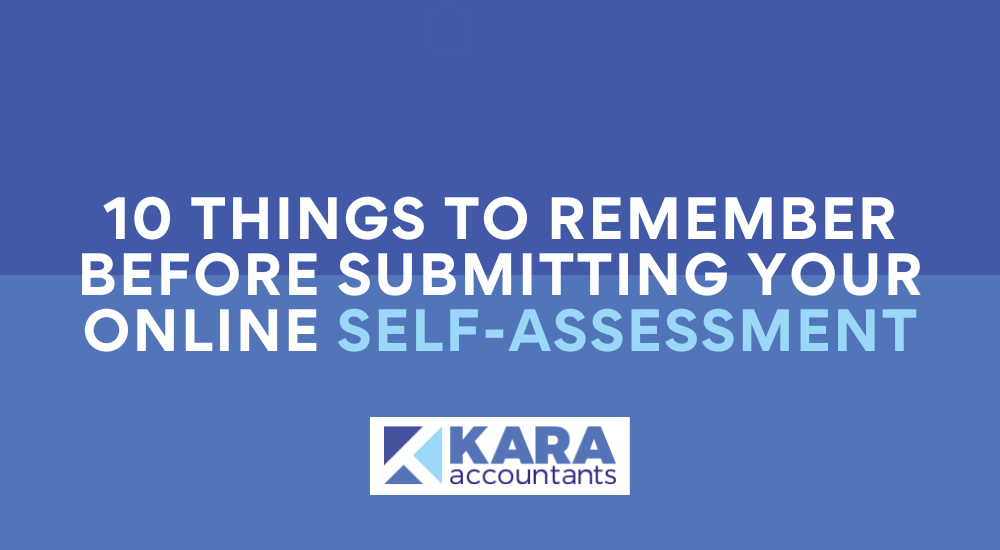
10 Things To Remember Before Submitting Your Online Self-Assessment
Handling your online self-assessment tax return can feel like navigating a maze, especially when the deadline looms near. Here are some key points to keep in mind before submitting your return at the end of January:
Gather All Necessary Documents:
Ensure you have all your financial records, receipts, and relevant documents organised before starting. This includes income statements, expense receipts, bank statements, and any other documents relevant to your income and expenditures for the tax year.
Understand Deadlines:
The deadline for submitting your self-assessment tax return online is usually January 31st each year. Mark this date in your calendar well in advance to avoid last-minute rush and potential penalties for late submission.
Register on Time:
If it’s your first time doing a self-assessment, make sure you register with HM Revenue and Customs (HMRC) in advance. Sometimes the registration process can take a few weeks, so don’t leave it until the last minute.
Check for Changes in Tax Laws:
Tax rules and regulations can change from year to year. Stay updated with the latest updates and ensure you’re familiar with any changes that might affect your tax return. This can include alterations to tax allowances, thresholds, or deductions.
Accurate Recording of Income and Expenses:
Ensure that all your income sources and expenses are accurately recorded. Mistakes or omissions can lead to potential penalties or inquiries from HMRC. Double-check entries to avoid errors.
Utilise Allowable Deductions and Expenses:
Be aware of what expenses and deductions you’re entitled to claim. This might include allowable business expenses, charitable donations, pension contributions, or other eligible deductions that can reduce your taxable income.
Consider Professional Help if Needed:
Tax laws can be complex, and if your finances are more intricate or if you’re unsure about certain aspects, seeking advice from a tax professional or accountant can be invaluable.
Submit Well Before the Deadline:
Don’t wait until the last day to submit your return. Technical glitches or unexpected issues can arise, and it’s better to have a buffer period to tackle them.
Keep Confirmation Records:
Once you’ve submitted your tax return, keep a copy of the submission confirmation. This is your proof of filing in case there are any discrepancies or issues later on.
Prepare for Payment:
If you owe tax, ensure you have the funds available to make the payment. HMRC will provide details of how much tax you owe, and it’s crucial to make payment by the deadline to avoid additional penalties or interest.
Remember, while doing your tax return might seem daunting, staying organised, informed, and starting early can make the process much smoother. And if in doubt, seeking professional advice is always a wise move.

This Post Has 0 Comments